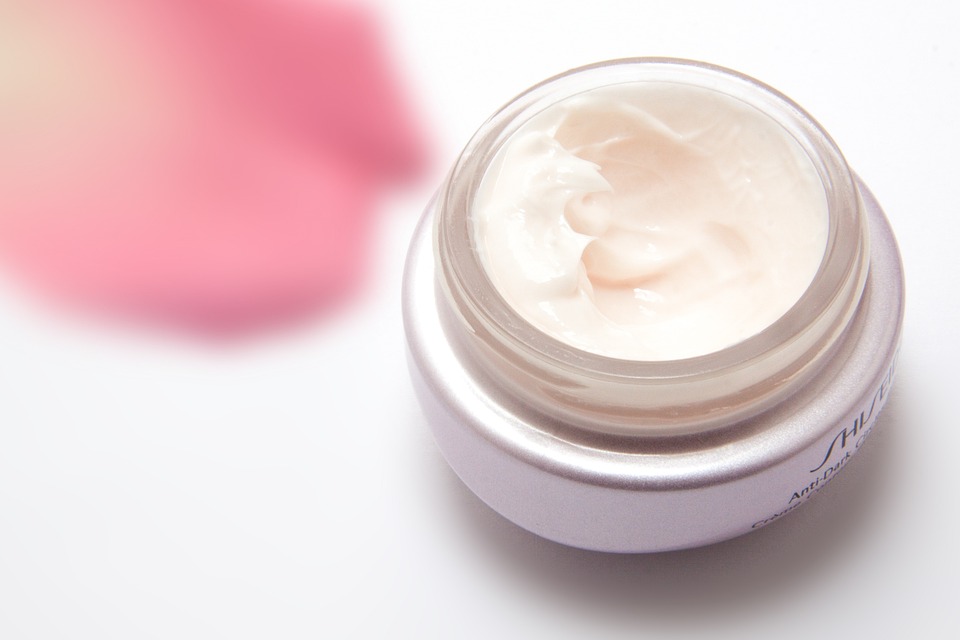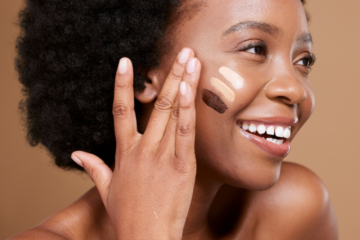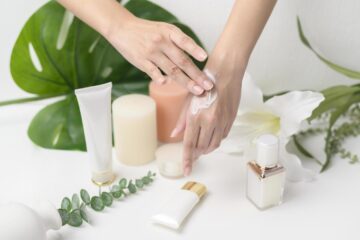In a world filled with beauty products and treatments, finding the right anti-aging skincare secrets can feel like searching for a needle in a haystack. But what if we told you that achieving youthful, radiant skin is simpler than you might think? Whether you’re a skincare novice or a beauty guru, understanding the fundamentals of anti-aging skincare is crucial at any age.
This blog post will guide you through essential tips and strategies to keep your skin looking vibrant and healthy. From understanding your skin type to tailoring your routine by age group, we’ll cover everything you need to know to transform your skincare game. Plus, we’ll share real-life success stories and expert advice to inspire you on your journey to glowing skin.
Understanding Your Skin
Before embarking on your anti-aging skincare journey, it’s essential to understand your unique skin type and its specific needs. Your skin is as individual as you are, and recognizing its characteristics will help you choose the right products and treatments.
Identifying Your Skin Type
The first step in crafting an effective skincare routine is identifying your skin type. Generally, skin types are categorized into five main groups:
- Normal Skin – Balanced, not too oily or dry.
- Oily Skin – Shiny, prone to acne and enlarged pores.
- Dry Skin – Flaky, rough, and often feels tight.
- Combination Skin – Oily in the T-zone (forehead, nose, chin) but dry or normal elsewhere.
- Sensitive Skin – Prone to redness and irritation.
Knowing Your Skin’s Needs
Each skin type requires specific care to maintain its health and vitality. For instance, oily skin benefits from products that control sebum production and prevent breakouts, while dry skin thrives on rich, hydrating formulas. Sensitive skin needs gentle, non-irritating products to avoid flare-ups.
Tailoring Your Routine
Once you’ve identified your skin type, you can tailor your skincare routine to address its unique needs. This personalized approach ensures that your skin gets the care it deserves, setting the foundation for a comprehensive anti-aging regimen.
Skincare by Age Group
Your skin evolves over time, and so should your skincare routine. Here’s how to tailor your regimen to different stages of life:
Teens
Teenage skin is often hormonal and prone to breakouts. Focus on gentle cleansing, light hydration, and sun protection. Avoid harsh products that can strip the skin of its natural oils.
20s
In your 20s, your skin is resilient but still needs care. Establish a solid routine with cleansing, moisturizing, and SPF. Begin incorporating antioxidants like Vitamin C to combat free radicals.
30s
In your 30s, your skin starts to show early signs of aging. Introduce anti-aging products like retinol and peptides, which boost collagen production and reduce fine lines. Don’t forget hydration and sun protection.
40s
Your 40s bring more pronounced changes. Focus on hydration, adding hyaluronic acid and ceramides to lock in moisture. Continue using anti-aging ingredients and consider facial oils for extra nourishment.
50s and Beyond
Skin in your 50s and beyond tends to be drier and thinner. Opt for rich, emollient creams and serums packed with peptides and growth factors. Don’t neglect your neck and décolletage, and continue protecting your skin from UV damage.
Case Studies and Success Stories
Real-life examples can provide inspiration and practical insights into transforming your skincare routine. Here are a few success stories from women who found their path to radiant skin:
Emily, 25
Emily struggled with dry, acne-prone skin until she discovered a personalized skincare routine. By focusing on gentle cleansers, hydrating serums, and non-comedogenic moisturizers, she transformed her complexion.
Samantha, 35
Samantha noticed early signs of aging and turned to targeted anti-aging products. Incorporating retinol, peptides, and Vitamin C into her routine helped reduce fine lines and improve skin texture.
Anna, 40
Anna’s combination skin required a balanced approach. Using lightweight moisturizers for her oily T-zone and richer creams for dry areas, she achieved a harmonious complexion.
Rachel, 50
Rachel maintained her youthful glow by combining skincare with a balanced diet and regular exercise. Her holistic approach included peptide-rich serums and antioxidant-packed foods, resulting in radiant skin.
Essential Skincare Tips
Timeless skincare advice can help you maintain youthful, glowing skin. Here are some essential tips to incorporate into your daily routine:
The Importance of Sunscreen
Sun protection is vital at any age. Use a broad-spectrum sunscreen with SPF 30 or higher every day, even on cloudy days. Sunscreen prevents premature aging and protects against skin cancer.
Stay Hydrated
Hydration is key to plump, healthy skin. Drink plenty of water throughout the day and use hydrating products like hyaluronic acid serums and moisturizers.
Balanced Diet
A balanced diet rich in antioxidants, vitamins, and minerals supports skin health. Include plenty of fruits, vegetables, lean proteins, and healthy fats in your meals to nourish your skin from within.
Seasonal Changes and How They Affect Your Skin
Your skin’s needs can vary with the seasons. Adapting your skincare routine accordingly ensures year-round health and glow.
Winter
Cold weather can strip your skin of moisture. Use richer creams, and gentle cleansers, and avoid hot showers. Humidifiers can also help maintain indoor moisture levels.
Spring
Spring is a time for renewal. Exfoliate to remove dead skin cells and switch to lighter moisturizers. Continue using sunscreen as the days get longer.
Summer
Summer heat increases oil production. Use oil-free products, stay hydrated, and reapply sunscreen regularly. Lightweight, gel-based formulas can keep your skin cool and refreshed.
Fall
Fall is a time to repair summer damage. Introduce retinol and other reparative ingredients while maintaining hydration. Transition to thicker creams as the weather cools.
Skincare Myths Debunked
Despite the abundance of information available, many myths about skincare persist. Clarifying these misconceptions is essential to ensure you make informed decisions about your skincare routine.
Myth 1: Oily Skin Doesn’t Need Moisturizer
Many people believe that if they have oily skin, they can skip moisturizer. However, oily skin can still become dehydrated, which may lead to increased oil production. Opt for lightweight, oil-free moisturizers to maintain hydration without clogging pores.
Myth 2: You Only Need Sunscreen in Summer
Sun protection is crucial year-round, not just during the sunny months. UV rays can penetrate clouds and reflect off surfaces even in winter, making daily sunscreen application necessary regardless of the season.
Myth 3: Expensive Products Are Always Better
The effectiveness of skincare products isn’t necessarily tied to their price. Sometimes, affordable products can deliver results just as well as high-end ones. Focus on ingredients that work for your skin type rather than the price tag.
Myth 4: Natural Ingredients Are Always Safe
While many natural ingredients can be beneficial, they aren’t inherently safe for all skin types. Always perform a patch test to check for reactions, as some natural ingredients can cause irritation.
The Role of Professional Treatments
In addition to at-home routines, professional skincare treatments can enhance your complexion. Procedures such as chemical peels, microdermabrasion, and laser therapy can address specific concerns like pigmentation, fine lines, or uneven texture, providing results that over-the-counter products may not achieve alone. Consulting with a licensed dermatologist can help you determine the most suitable options for your skin.
Incorporating Anti-Aging Products
Introducing anti-aging products into your routine can be a game-changer. Here’s a guide to understanding the ingredients that work best for your skin:
Retinol
Retinol is a powerful ingredient that boosts collagen production and accelerates cell turnover. Start with a low concentration and gradually increase as your skin builds tolerance.
Peptides
Peptides are amino acids that support the skin’s structure and function. They help reduce wrinkles and improve skin elasticity. Look for serums and creams with peptides for best results.
Hyaluronic Acid
Hyaluronic acid is a hydrating powerhouse. It attracts and retains moisture, keeping your skin plump and supple. Use it in serums or moisturizers for an instant hydration boost.
Conclusion
Achieving youthful, radiant skin doesn’t have to be complicated. By understanding your skin type, tailoring your routine to your age, and incorporating essential skincare tips, you can unlock the secrets to lasting beauty. Remember, the key to successful skincare is consistency and personalization.
Ready to transform your skincare routine? Our team of experts is here to help. Book a consultation with one of our skincare specialists today and discover a personalized approach to achieving your best skin yet.
For more tips and insights on maintaining a glowing complexion, explore our articles on Morning Skincare Routines, Nighttime Beauty Habits, and Seasonal Skincare Tips.





